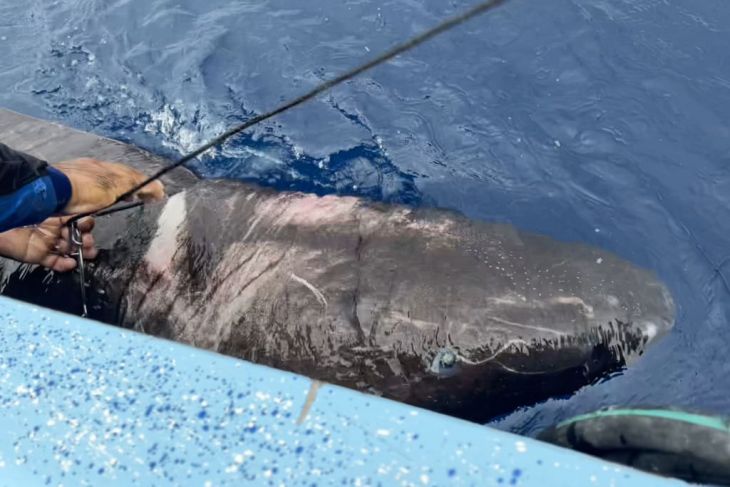A specimen of a species of shark whose natural habitat is the icy waters of the Arctic Ocean was found in the reefs of Belize, a country located on the Caribbean coast of Central America, a strange finding that possibly being the first of its kind has aroused interest scientific.
Experts from the International University of Florida (FIU, for its acronym in English) have studied this unusual finding, given the enormous distance of the habitat of the Greenland shark (Somniosus microcephalus) in relation to the point where it has been located, in warm Caribbean waters of Belize.
A representative of the university told sources that the shark has been captured and later released for its safety, although the objective is to monitor the area so that, if the specimen or another of the same species is found again, incorporate a mechanism. of follow-up that allows to know the migratory behavior.
The captured shark is a half-blind specimen that normally lives in Arctic waters and feeds on the carcasses of polar bears, a species that survives for hundreds of years.
The specimen recently appeared in such an unexpected place as a coral reef off the coast of Belize.
FIU experts have determined that this is the first time that a shark of this type has been located in the waters of the western Caribbean of Belize, in front of the second longest barrier reef in the world.
Researcher Devanshi Kasana, who works at FlU’s Predator Ecology and Conservation lab, was with local Belizean fishermen monitoring tiger sharks when the discovery was made.
“I knew it was something unusual and so did the fishermen, who had never seen anything like it in all their years in the area,” the researcher said of the finding.
After a consultation with the Shark and Ray Conservation Research Department at the Mote Marine Laboratory Aquarium, in Boca Grande, in the state of Florida, it was determined that according to the photos received, it was a specimen of the Greenland shark family. or Somniosus microcephalus.
They specified that it could also be a hybrid between the Greenland shark and the Pacific sleeper shark (Somniosus pacificus).
Greenland sharks remain an enigma to science, although they are known to prefer the icy waters of the Arctic Ocean.
It is estimated that these sharks live more than 400 years, which gives them the designation of longest-lived vertebrate known to science.
A first hypothesis to explain their presence in the Caribbean suggests that Greenland sharks could be tracking the depths of the ocean around the world.
The FIU and the Belize Department of Fisheries work together to reduce shark catches and protect populations of this species.
One of the world’s leading experts on Greenland sharks, Nigel Hussey, a British associate professor of biology at the University of Windsor, sent FIU researchers a team of four satellite-tracking devices to, in the event of a new discovery of the Greenland shark, follow the migratory behavior of the species.

